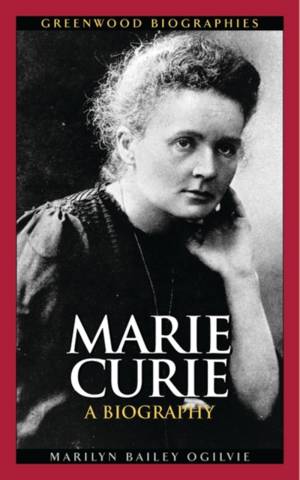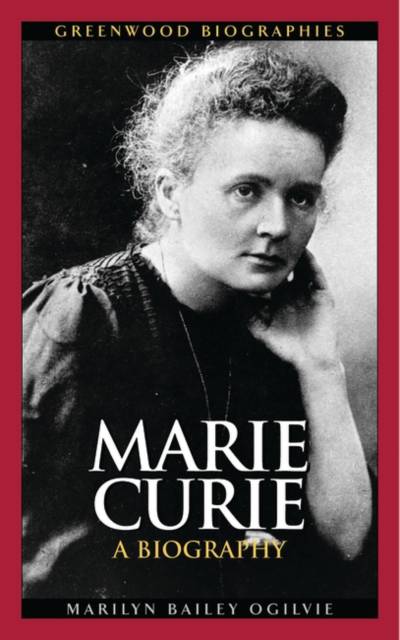
- Retrait gratuit dans votre magasin Club
- 7.000.000 titres dans notre catalogue
- Payer en toute sécurité
- Toujours un magasin près de chez vous
- Retrait gratuit dans votre magasin Club
- 7.000.000 titres dans notre catalogue
- Payer en toute sécurité
- Toujours un magasin près de chez vous
Description
Marie Curie (1867-1934) was one of the most important woman scientists in history, and she was one of the most influential scientists--man or woman--of the 20th century. Curie postulated that radiation was an atomic property, a discovery that has led to significant scientific developments since. She was also the first person to use the term radioactivity. Her perseverance led to the discovery of two new elements, polonium and radium. This combination of creativity and perseverance netted her two Nobel Prizes, one in physics and the second in chemistry. This book, however, looks at more than her scientific achievements. While Curie is often portrayed as a stern, one-dimensional woman so totally committed to her science that she was incapable of complex emotions, the truth is that the opposite is the case.
Marie Curie: A Biography covers her entire lifetime, beginning with her early life and education in a Poland under the oppressive rule of the czar of Russia. The book discusses all aspects--both personal and scientific--of her fascinating life:- Her education at the Sorbonne in Paris, where she earned the equivalent of two master's degrees--one in physics and a second in mathematics
- Her marriage to Pierre Curie, with whom she collaborated on much of her scientific work
- The personal scandal that surrounded Marie in the aftermath of Pierre's tragic death
- The Nobel Prize awards, and the detractors who believed that her work was actually performed by her husband
Curie's work in establishing mobile X-ray units during World War I, and the establishment of radium institutes to study radiation Running throughout there is the much of the book is the tension between radium as a positive discovery and, on the other hand, the health risks that working with it presents. The book includes a timeline of important events in Curie's life and a bibliography of important primary and secondary sources.
Spécifications
Parties prenantes
- Auteur(s) :
- Editeur:
Contenu
- Nombre de pages :
- 155
- Langue:
- Anglais
- Collection :
Caractéristiques
- EAN:
- 9780313325298
- Date de parution :
- 01-09-04
- Format:
- Livre relié
- Format numérique:
- Genaaid
- Dimensions :
- 164 mm x 238 mm
- Poids :
- 426 g







